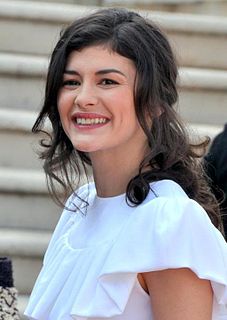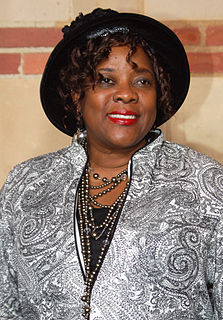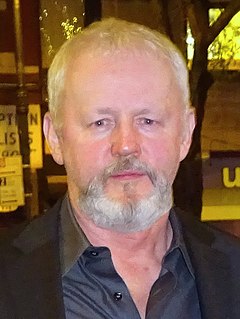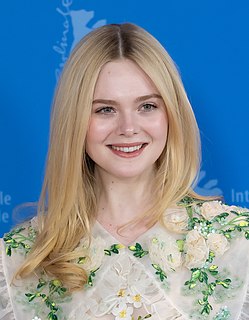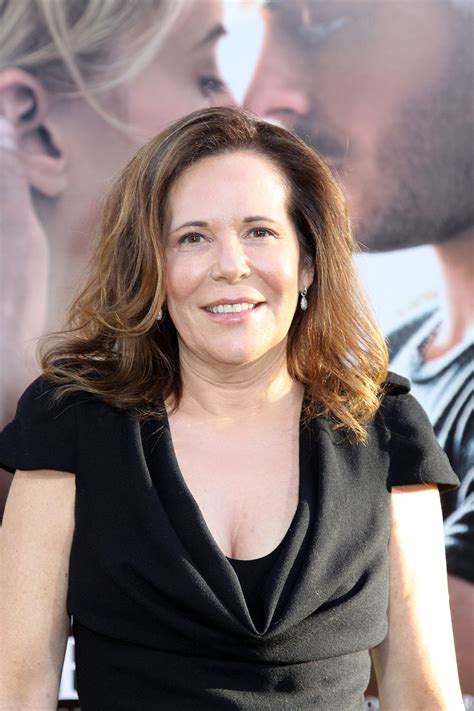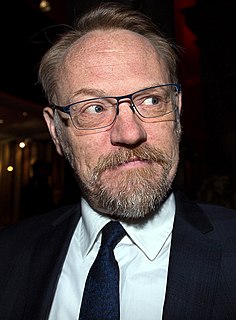A Quote by Audrey Tautou
I like to think in camera, but at the last minute the most important thing is that there is something happening between the actors. But good actors can have a lot of scenes going around them but sometimes it sort of helps the performance because it takes their mind off of who they are supposed to be.
Quote Topics
Related Quotes
I love actors. Part of that is my theater background and being a writer who cares about performance. Actors have usually chosen their profession because they have a dream of doing it and they want to express something about the world. That's the same thing that I have with writing. Most of the good actors get into it for those reason, rather than for reasons of fame or fortune, or anything like that, and that's where I'm coming from, as a storyteller.
Comedians work great as actors because they're good under pressure. With a lot of actors, you have to make them feel like everything's going really well to get a good performance out of them. But, if you have a comedian on the set, you can tell them, 'Hey, you really are screwing this up,' and then they just get better.
There are etiquette things that actors, new actors, need to know about. Because it only takes one mess-up on a set to get fired. Not being where you're supposed to be or saying something to the wrong person that you're not supposed to say, and those are like basic things that the actors need to know.
I've always thought that when anyone receives an award for acting they should always thank their fellow actors, because the only way you're going to deliver your best performance is when you have other good actors on the set supporting you and being very present for you even when the camera is not on them.
You can give the greatest performance possible, but if you don't have a director who's pointing the camera in the right direction and an editor who's editing it properly, it doesn't matter what you do. The director and the editor are the most important people. Not the actors. Sometimes the writer is important. But if you don't have a good director, you can't have a good production.
The characters I didn't have actors in mind for, that was the scary moment. Because in any production, until you find the right person, you're constantly judging your writing or what it is that isn't working here or not clicking here, because you have amazing actors coming to read for it, and if something's not clicking, it can't be them because they're amazing actors. You're sort of completely doubting yourself.
I was kind of scared at first to do that [vice-over] because when you're on set, a lot of the things going on around you - the environment and playing off other actors - and that's what makes it easier and helps you to be in your character. So, realizing you're not going to have that and you're going to be secluded in this booth, it's like, "How am I going to be a character when I'm just in these walls?"
You work with every actor differently. It's like if you're a mother, if you have children, some children need more discipline. Other children you back off of a little bit and let them be. It's the same way with actors. Some actors need a lot of hand holding. Other actors like to be let be and you let them go. Some actors like to be nudged just a little bit. Some actors don't mind line readings.
I think casting is really important. Finding the right sensibility for the right part is an art in itself. If you're off there, you make it harder on yourself as a director. And it's fun to work that out with the actors. I don't think there's any magic to directing actors. It's very instinctual. Working with actors is really one of my favorite creative moments of the whole process, and the most fun, because it's collaborative. I spend a lot of time rehearsing. I'm very rehearsal-oriented, probably because I have some background in theater. I like knowing what will work beforehand.
